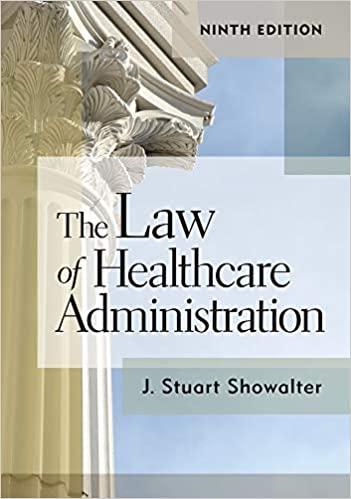On appeal, defendant raises several alleged trial errors. He presses more strongly, however, his contentions that the
Question:
On appeal, defendant raises several alleged trial errors. He presses more strongly, however, his contentions that the evidence was insufficient to support the guilty verdict on the Medicare fraud counts, and that the charge to the jury on that issue was not correct. . . .
I. Medicare Fraud The Medicare fraud statute was amended [in 1977]. Congress, concerned with the growing problem of fraud and abuse in the system, wished to strengthen the penalties to enhance the deterrent effect of the statute. To achieve this purpose, the crime was upgraded from a misdemeanor to a felony.
Another aim of the amendments was to address the complaints of the United States Attorneys who were responsible for prosecuting fraud cases. They informed Congress that the language of the predecessor statute was “unclear and needed clarification.”
A particular concern was the practice of giving “kickbacks” to encourage the referral of work. Testimony before the Congressional committee was that “physicians often determine which laboratories would do the test work for their Medicaid patients by the amount of the kickbacks and rebates offered by the laboratory. . . . Kickbacks take a number of forms including cash, long-term credit arrangements, gifts, supplies and equipment, and the furnishing of business machines.”
To remedy the deficiencies in the statute and achieve more certainty, the present version of 42 U.S.C. § 1395nn(b)(2) was enacted. It provides: whoever knowingly and willfully offers or pays any remuneration (including any kickback, bribe or rebate) directly or indirectly, overtly or covertly in cash or in kind to induce such person . . . (B) to purchase, lease, order, or arrange for or recommend purchasing . . . or ordering any . . . service or item for which payment may be made . . . under this title, shall be guilty of a felony. The district judge instructed the jury that the government was required to prove that Cardio-Med paid . . . some part of the amount received from Medicare; that defendant caused Cardio-Med to make the payment; and did so knowingly and willfully as well as with the intent to induce Dr. Avallone to use Cardio-Med’s services for patients covered by Medicare.
The judge further charged that even if the physician interpreting the test did so as a consultant to Cardio-Med, that fact was immaterial if a purpose of the fee was to induce the ordering of services from Cardio-Med..............
Discussion Questions
1). How, if at all, can you distinguish Greber from other instances of payments for professional services? Suppose the percentage Dr. Greber paid to the physicians had not exceeded Medicare’s guidelines. Would that payment still amount to prohibited remuneration in this court’s eyes?
2). Suppose you are a lawyer or a compliance officer advising a hospital cardiology department. The department has a contract under whose terms it will pay a certain cardiology group a fixed dollar amount for every electrocardiogram (ECG) it interprets, and the hospital will bill Medicare accordingly. The dollar amount is equal to Medicare’s allowable charge for a basic ECG and report, and all readings are medically necessary. You ask why the hospital does not just let the doctors bill Medicare themselves, and the reply is, “Oh, it’s such a hassle for them. We already have a billing department, and we can do it for them easily.” What is your response, and why?
Step by Step Answer:






